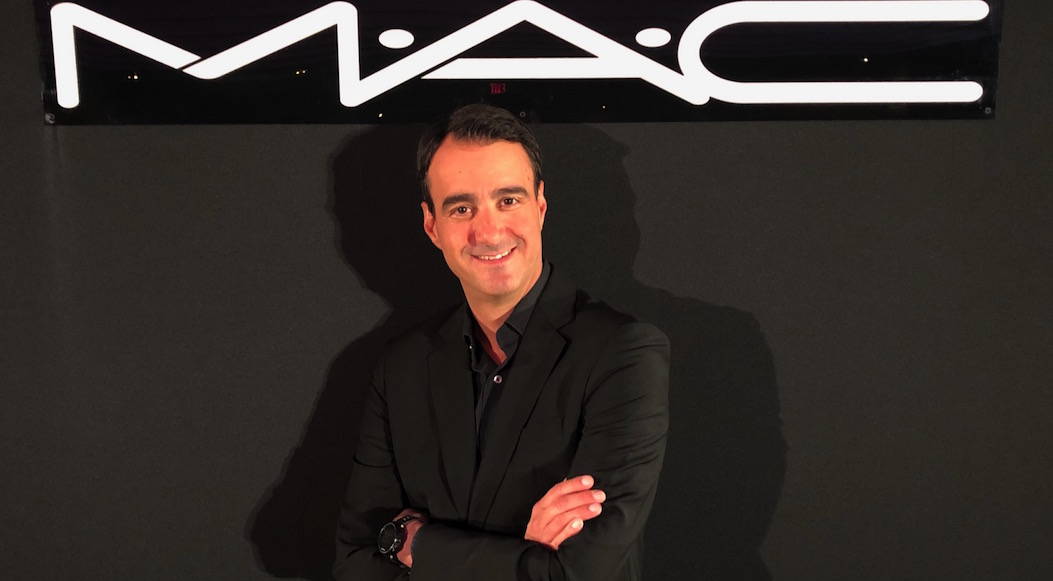
Constantin Sklavenitis is the son of nuclear physicists. Result: he runs … a makeup brand. And not just any French of Greek origin, contaminated by "the beauty virusAfter visiting L'Oréal on his campus when he was a student, he has been responsible for North America's MAC Cosmetics, a subsidiary of the Estée Lauder group, since February. Before taking control of the brand, he went through executive positions at Urban Decay, Kiehl's and L'Oreal.
Leader in the market of cosmetics with several thousand outlets in the United States, it is experiencing fierce competition from smaller brands that have flourished over the last decade. "There were twenty brands a few years ago. Today, there are more than 200, the market has become hyper competitive and historical brands must adapt", Says Constantin Sklavenitis. "TheArrival of the phones and the craze for selfies have had a impact on the makeup market: Women, and also men, want appear to their advantage, look beautiful. So, the lThe makeup market doubled in 6-7 years".
A bigger market certainly, but also more fragmented. "Before, brands needed to invest heavily in innovation, people and points of sale. Then the Sephora and Ulta Beauty stores arrived and lowered the barriers to entry. It has become possible to afford a point of sale with 4-500 dollars, to do without beauty advisors, using social networks for advertising …" This context poses new challenges for established brands like MAC, founded in the 80s. How to adapt to this changing market while maintaining its identity?
Return to the foundations of the brand
Created by two make-up artists in 1984, Frank Toskan and Frank Angelo, MAC wanted to offer cosmetic products in line with the expectations of the women of their time. His colorful makeup, adapted to minorities, was a huge success. But, "Like many brands, we have gradually become locked in our model and we have lost sight of the evolution of consumer insights. MAC became a make-up brand for makeup artists, and customers had to adaptsummarizes the leader. Gold, the new generations, especially the Gen-Z (4-24 years), reject the marketing models of the 2000s when the brand was all-powerful, they refuse to be put "in molds" and want an offer and a personalized service . It is the generation of "I am who I am, I do what I want" …"
Change the practices in shop
As it is not easy to change the practices of 7,000 makeup artists overnight, it was therefore necessary to test this "new MAC" on a very small scale. A prototype shop was chosen at the World Trade Center to try new management techniques and customer experience. The brand has hired outside coaches to work on welcoming customers because "a relationship is harder to restore if the initial reception was not good". The change went through little things: "We greeted the customer with a smile, given badges custom to make-up artists… "Long services have also been replaced by faster makeup sessions.
Another change: makeup artists, who did not look at sales figures (conversion rate, average basket, number of products per transaction …), analyze now "every hour"So as to be more responsive to fluctuations. The hierarchy has also been revised. "Before, the organization was based on makeup artists who climbed the ladder. But in the shops, we did not know who the director was". The prototype shop became, in a month, "a champion of growth", He says.
Break the walls
In any large company, there is resistance to change. Inspired by the reorganization initiated by Carlos Ghosn at the head of Nissan, the French decided to reduce the number of goals given to teams. He has created "multi-functional" groups (sales, purchasing, marketing, logistics …) to facilitate the sharing of ideas and work on specific objectives, such as "change the way of selling"In shop.
Do not underestimate the "brick and mortar"
The "retail is not dead, according to Constantin Sklavenitis. Even if digital is growing, the brick and mortar represents a big part of our turnover". He cites a study that shows his target audience, the sacrosanct Gen-Z, "prefers to buy cosmetics in physical shops"Unlike their elders. "Investing in our spaces to create differentiating experiences will create a competitive advantage and customers will come back. MAC is an exceptional brand that has revolutionized the makeup market, and the quality of its products still make it the reference brand of the American market.".
Recreate demand
To attract new customers, especially younger ones, MAC has invested "strongly"In the" influencers "and social networks. Instagram of course, but not only. The brand is also present on Snapshat and TikTok, the short video exchange platform very popular among teenagers. "We must be more than ever to listen consumer, especially young people. They hardly go on Google anymore. How to touch them? If they are on TikTok, you have to be there too". This work is inseparable from a reflection on the consumers of tomorrow. "You also have to wonder who will grow in ten years time. In 20-30 years, we know that Caucasians will be a minority, for example."
Take inspiration from other backgrounds
To drive changes at the head of MAC, Constantin Sklavenitis was not inspired by the makeup industry. In addition to Carlos Ghosn, he quotes former French CEO of Best Buy Hubert Joly, who re-invented the retail brand in the digital age, or the leader of Ralph Lauren Patrice Louvet as sources of inspiration. He also mentions Sidney Toledano, former CEO of Christian Dior Couture, who used to say "people, people, people" rather "rental, rental, rental"To emphasize the importance of investing in people. "If we limit ourselves to looking at our own sector, we repeat the practices before and we fall back".









